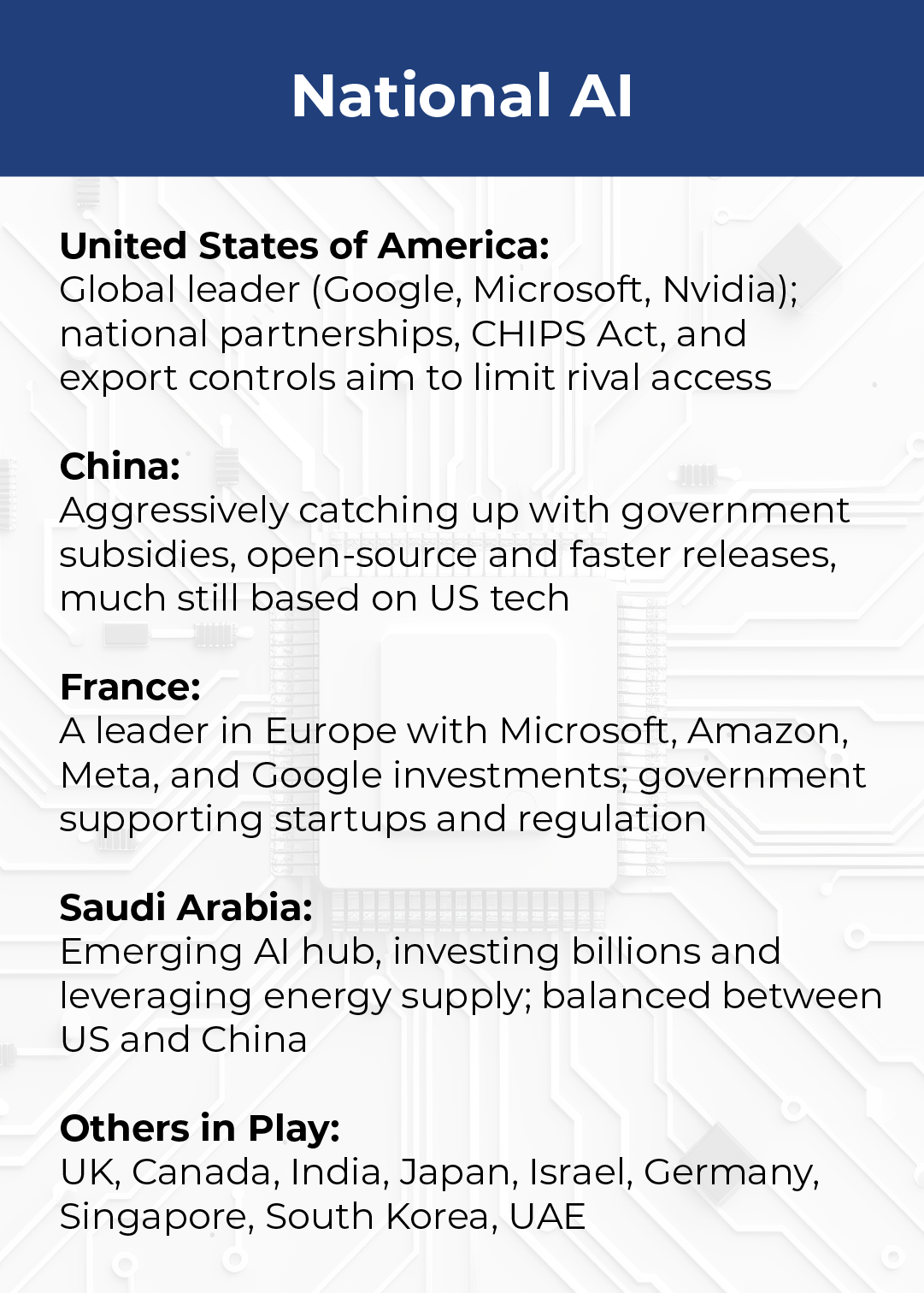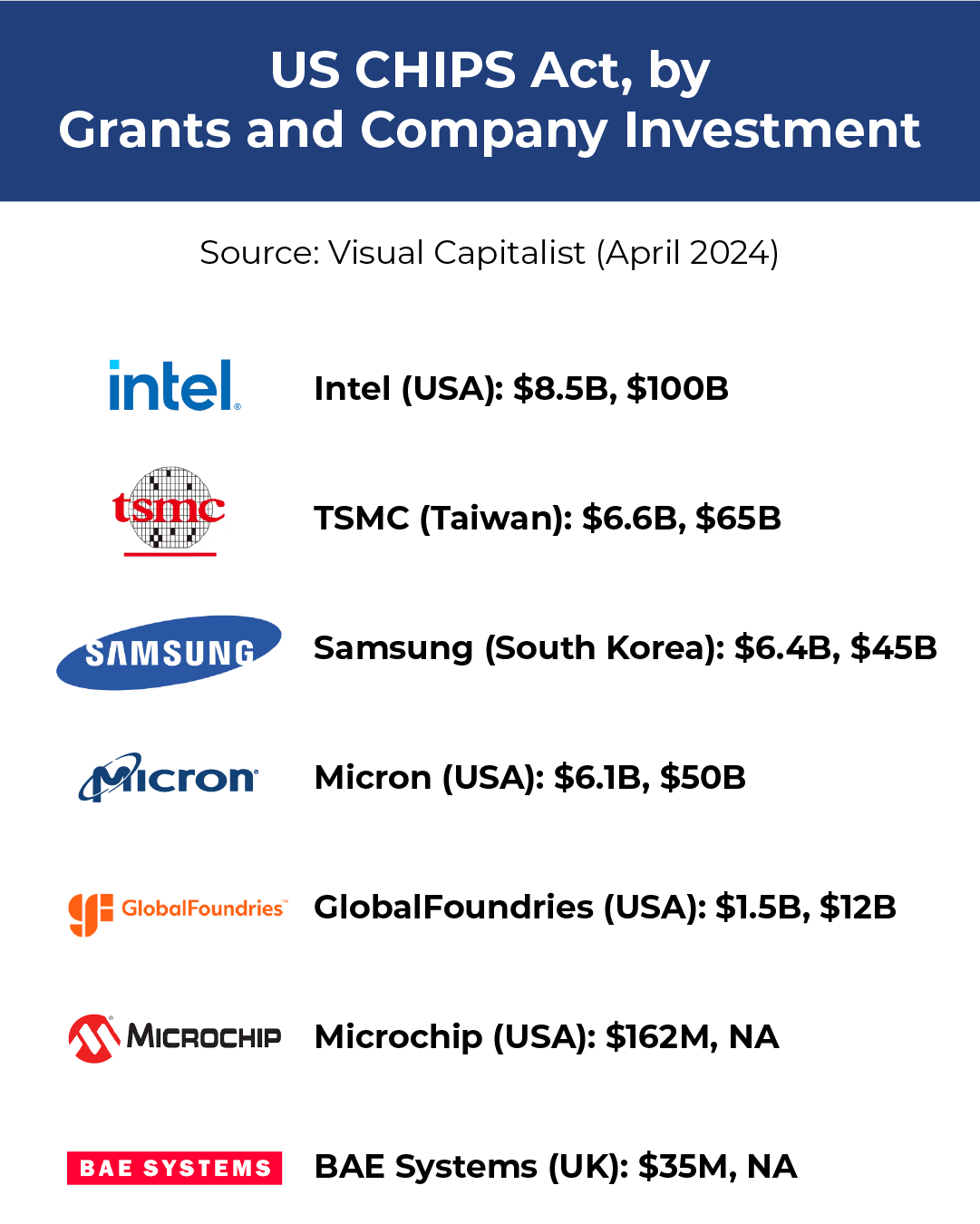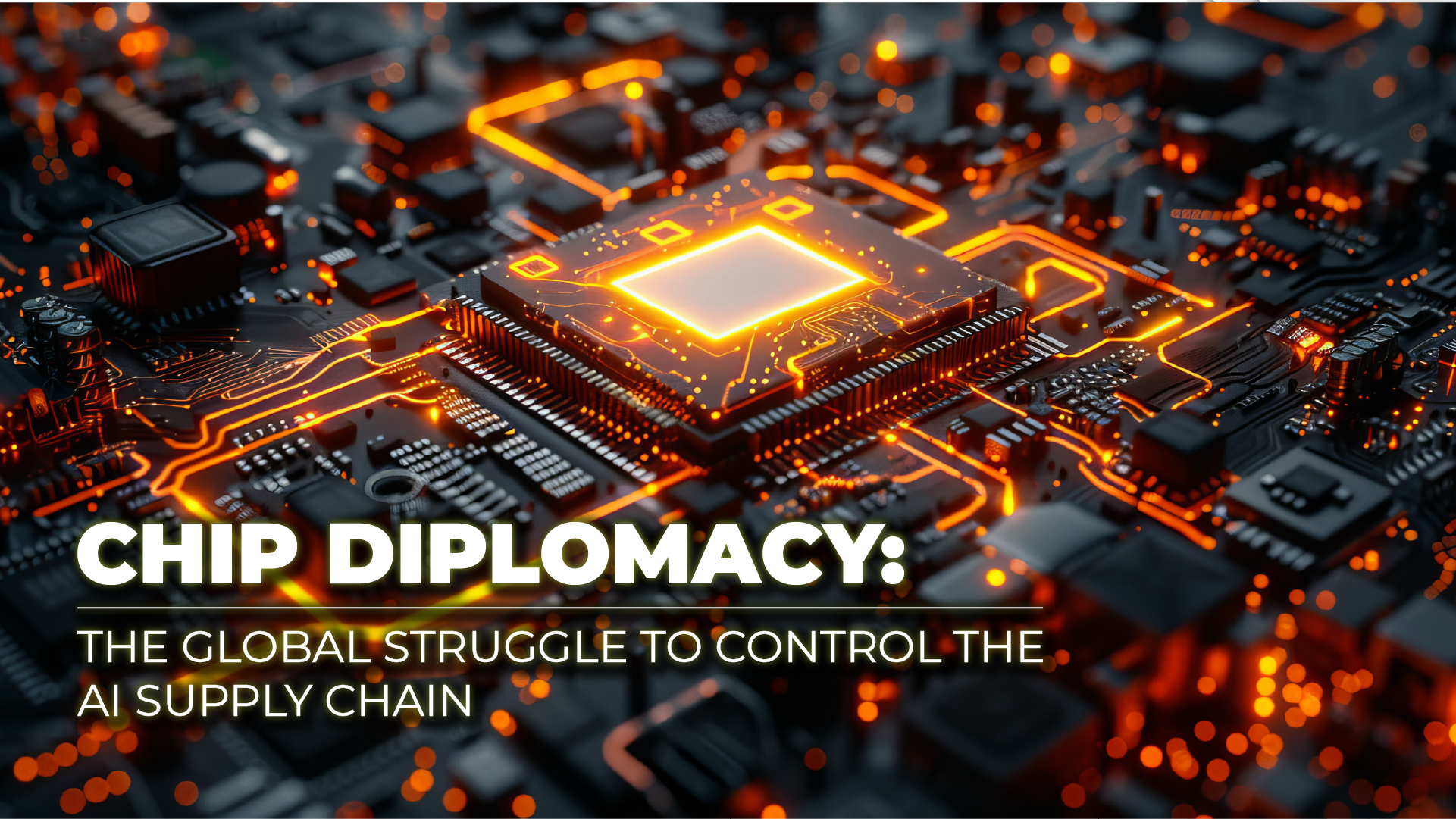There are no limits. Or they haven’t been glimpsed yet, anyway, regarding the global AI impact—given more computational power, data, and real-world resources.
As Microsoft Web Services and Advertising CEO (and ML expert) Mikhail Parakhin wrote on Twitter/X regarding the arrival of AI’s next step:
“…this is the race of locomotives. You saw one arrive at the station and leave, then, much later, many more arrived and left. The fact that the first one hasn’t reached the next station yet doesn’t mean that they are all standing still.”
Former member of OpenAI’s Superalignment team and founder of an AGI-driven investment firm Leopold Aschenbrenner goes much further. In a paper titled Situational Awareness: The Decade Ahead, he makes the following, provocative predictions:
- We’ve shot past our benchmarks to even measure AI’s innovation impact, and nearly every bet against it has been wrong.
- We could have AGI by 2027, and AI superintelligence will follow (possibly by 2030).
- America must undergo industrial mobilization (in progress) to handle the demands.
- AI technology development will be the revenue driver for America’s biggest companies, with annual investments going above $1 trillion by 2027.
- AI is already a national security issue, and despite the boons, will also pose an existential threat.
- He believes the US may create something along the lines of the Manhattan Project for ASI.
Quoting Niels Bohr, to Edward Teller, on the Manhattan Project:
“You see, I told you it couldn’t be done without turning the whole country into a factory. You have done just that.”
Are such predictions far-fetched?
Maybe.
But Aschenbrenner’s assertions about the global AI competition—that it could be the key to future power and potentially even continued relevance—are already bearing fruit.
As a report in the French government warns (reported by The New York Times):
“We must rise to the challenge of AI, or risk losing control of our future.”
Governments are scrambling not only to keep pace, but for a stake in the AI supply chain’s control, in a process known as AI chip diplomacy.
Here we look at the status quo of AI technology control globally, and where it could soon be going.

The USA: Blockade and Incentivize
The US is the current, unquestioned leader in AI. After decades of talk on the need for new tech innovation, major AI powers like Nvidia, Google, Microsoft, OpenAI, and Anthropic have delivered it.
But in an increasingly global marketplace, with a technology that’s desperately hungry for resources, there’s little to ensure it will belong to any one nation more than another for long.
The US government is trying to buck this trend. Aiming to control the tech geopolitics and contain an extremely motivated China, government initiatives include:
- Expanding domestic tech beyond Silicon Valley and isolated sections of the country
- Securing foreign investment at US sites
- Bolstering AI-driven job training programs (with partnerships between American and overseas universities)
- Wrangling international partnerships (as with Japan and the Netherlands) to prevent sales to China and secure the semiconductor supply chain
- Developing assembling and packaging deals for US chips in nations like Costa Rica, Indonesia, Mexico, Panama, the Philippines, Vietnam, and Kenya

In 2022, the Biden administration also imposed one of the biggest tech blockades in history, sweeping AI export restrictions aimed at a key bottleneck in the global AI supply chain: a global chip shortage.
These rules stopped Nvidia from selling their top chips in China. (But they, like AMD and Intel, continue to sell inferior chips there with a 2024 stake estimated at $12 billion on the H20 chip alone.)
Nvidia is at the heart of AI chip production but also remains dependent on manufacturing from the Taiwan Semiconductor Manufacturing Company (TSMC).
Taiwan’s proximity to China, who refuses to rule out military engagement in a stated goal of reunification, remains problematic for American leadership concerned that AI will become as critical as experts like Aschenbrenner assert.
And disruption in Taiwan from political conflict or military action could shift immediate control of the AI chip component manufacturing that’s critical for AI development.
The US effort is driven by more than just market competition: like the atomic bomb before it, the concern is that AI developments (at the stage of AGI and beyond) might enable military, information, and social controls on a scale never before seen.
China’s Open-Source Enthusiasm
All indications are that China was caught out by the sudden explosion of AI on the public in 2022. Due in part to US export regulations, domestic censorship, and internal government regulations, Chinese companies found themselves behind in the technological development at the heart of AI.
But this slow start is being remedied aggressively, with the goal of reducing reliance on foreign tech.
On the business front, Chinese executives work to outmaneuver US restrictions by creating all new entities.
One example is Nettrix, a company founded by former executives of Sugon—a company blocked in 2019 by the Trump administration for supply Chinese military and surveillance tech. Just six months later, in 2020, Nettrix was launched and quickly took on Sugon’s ties with major US tech companies like Nvidia, Intel, and Microsoft.
Government initiatives are also pouring tens of billions of dollars into the industry for research, to push open-source models, and for the bolstering of their own chip industry. Wielding a vast store of internal data, they work to integrate AI into numerous sectors in a sprint to catch up with the US.
Open-source AI continues to be debated for this reason, with closed models (such as those at OpenAI, Google, Anthropic, and more) surging ahead initially. But with Meta’s Llama 3.1 and GPT-4 level models by Mistral and more, the open-source LLM has reached the plateau.
In contrast to US companies, Chinese AI pioneers push developments to consumers faster (Kling in AI video is one example), seeking to replicate or improve on US innovations.
But this approach also poses risks: aside from the dangers of less-tested and secure AI, it can expose vulnerabilities to enemies, and it remains to be seen if these companies, should they get ahead, would continue to embrace such openness. (Baidu’s CEO, for example, has espoused the closed model for the future.)
The biggest block may still be chips, with Chinese organizations struggling to get sufficient stockpiles of the most advanced hardware.
Huawei Technologies (also blocked in 2019) has received billions in government funding, working to overcome US sanctions with their Ascend 910C, reportedly comparable to Nvidia’s H100 (not available in China). But it still faces delays from US embargoes, and it remains to be seen if it can deliver as promised.
The black market for chips to China continues to thrive, with vendors openly peddling banned chips, sometimes through million-dollar transactions of scale.
Other National Initiatives
While the power struggle between the US and China dominates attention, other nations are staking their own claim in the AI supply chain.
France aims for AI leadership in Europe, anchoring a regulatory push while also seizing on support from both the government and major American tech companies. French AI firms like Mistral and H have attracted billions in investments from companies like Microsoft and Amazon.
President Emmanuel Macron promotes AI at the core of an emerging tech strategy, seeking a strong research and development ecosystem, with a focus on building homegrown AI technologies alongside international partnerships.
Saudi Arabia pursues a similar goal with its own approach, seeing AI as a core pillar of its Vision 2030 plan to diversify their economy beyond oil.
Committed to investing over $100 billion in AI this year alone, with massive spends on data centers, supercomputers, and in AI research, the kingdom has also secured partnerships with major international tech companies like Amazon, Google, and Microsoft. And its tremendous energy reserves remain attractive for the power-hungry technology.
With its location and contentious human rights reputation, Saudi Arabia is navigating a tenuous balance between the US and China.
In the west, the United Kingdom, Canada, and Germany are also leaders in AI innovation, with strong government support flowing to well-established research institutions, while in Asia, Singapore, South Korea, and India are leading the push.
Singapore has some of the world’s most AI-active citizenry per capita, and as a nation is integrating AI across public services. South Korea’s invested heavily in AI for robotics, smart city initiatives, and in autonomous vehicles, also seeing collaboration between government, academia, and industry.
India leverages its tech talent as an emerging player, with a focus on utilizing AI nationally in sectors like agriculture, healthcare, and education.
Israel is also investing in AI, in cybersecurity, defense, and healthcare, with a burgeoning startup community.
Conclusion
You may think of the EU as leading on AI regulation, but in academic research surveying AI regulations and policies, it’s China that is the most restrictive so far (with the US as the least so, per their broad taxonomy).
But in the push to catch up to other global powers, this regulation may be increasingly scaled back.
Competition has been a driver of global AI from the start, with companies pouring truly stunning amounts in (sometimes seemingly oblivious to returns), as some, like Nvidia, reap historic rewards.
But this same dynamic is true nationally (if less visibly), with countries increasingly focused on how information and hardware are passing between borders.
The stakes are potentially sky-high: while AI could lead to breakthroughs in healthcare, manufacturing, and education, it will also transform warfare and surveillance and could undermine the veracity of communication.
Equally challenging will be disparities in the concentration of power and wealth, which could further diverge with what’s required for this tech to reach each new plateau.
The Manhattan Project stands apart in history for its mind-boggling scale, fired by the warning that the atomic bomb’s transformative power might ensure the survival of some of history’s most dangerous ideologies.
Could similar fears trigger another such program in the near future?
It may sound ridiculous today, but it remains to be seen if this will look so absurd in two years’ time.
References
‘To the Future’: Saudi Arabia Spends Big to Become an A.I. Superpower, The New York Times
France is aiming to become a global AI superpower — but not without help from U.S. Big Tech, CNBC’s The Edge
AI Around the World: Here’s How Different Countries Are Using It, PC Mag
U.S. Creates High-Tech Global Supply Chains to Blunt Risks Tied to China, The New York Times
Huawei Readies New Chip to Challenge Nvidia, Surmounting U.S. Sanctions, The Wall Street Journal
The Global Race to Control A.I., The New York Times Newsletter
Funding Updates, NIST: Chips for America





